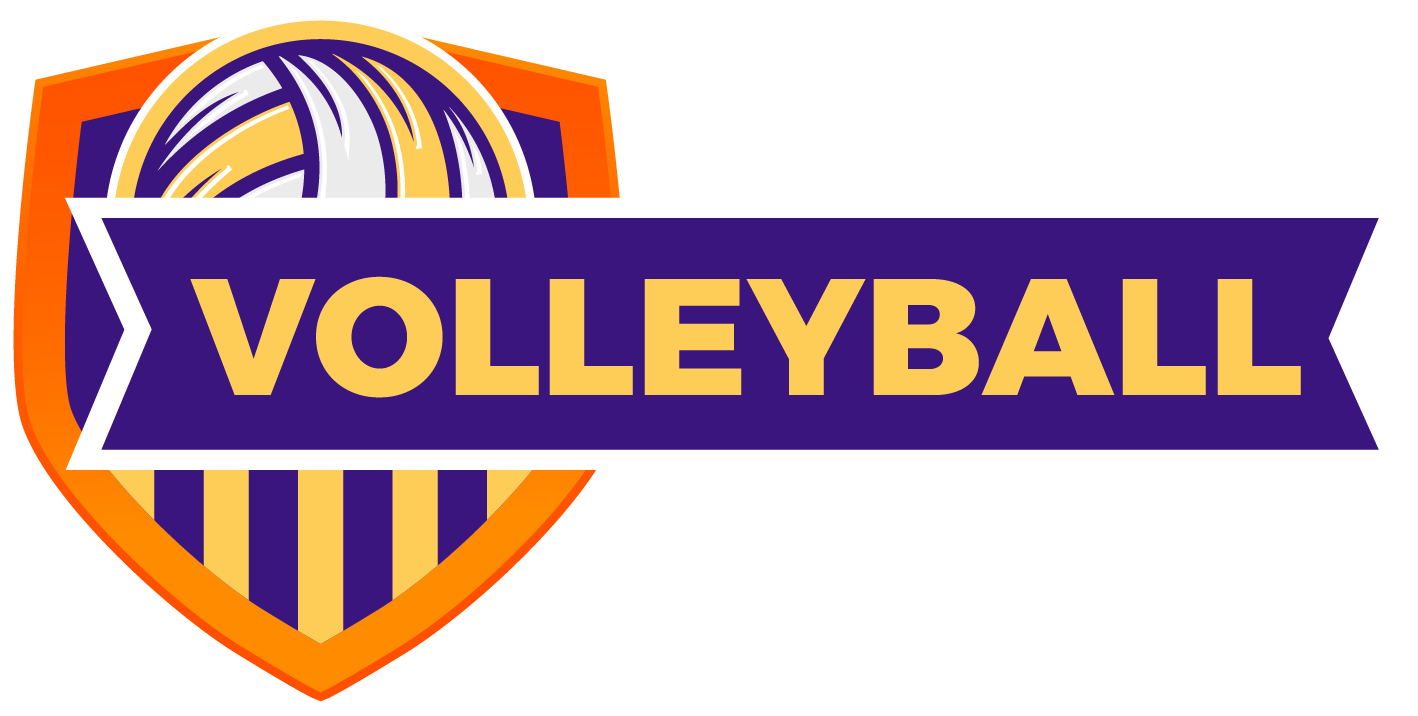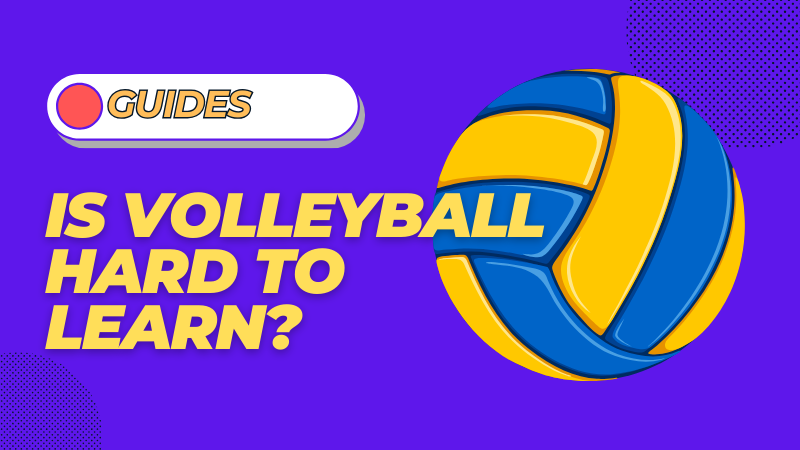Is volleyball hard? This question resonates with many new to this dynamic and exciting sport. From mastering fundamental skills like serving and hitting to the constant need for teamwork, agility, and quick reflexes, volleyball presents a unique set of challenges.
But what makes volleyball not just a game but a test of physical and mental endurance? Even experienced players must maintain excellent physical shape, with strong muscles throughout their legs, core, and upper body. The relentless pace demands concentration and coordination that few sports can match.
Interestingly, volleyball isn’t just a modern marvel of physicality. Did you know it was invented in 1895 by William G. Morgan as a less strenuous alternative to basketball?
Yet, the game’s evolution has turned it into a demanding sport enjoyed by over 800 million players worldwide. Whether just starting or aiming to become a professional, understanding what makes volleyball hard can be the first step in embracing and excelling at this thrilling sport.
Is Volleyball Hard?
Yes, volleyball can be hard, especially for those new to the game. It requires a combination of physical fitness, quick reflexes, and strategic thinking. Mastering the basic skills and working seamlessly as part of a team can be challenging yet rewarding.
The complexity of volleyball lies in its multifaceted nature. Serving, passing, setting, hitting, and blocking are skills that need time and practice to master. From the physical demands, such as explosive jumps and swift movements, to mental challenges, like quick decision-making under pressure, volleyball demands a well-rounded skill set.
Height might seem like an advantage, especially for hitting and blocking, but volleyball accommodates players of various stature. Shorter players can excel in serving and defense, illustrating the sport’s inclusivity.
Volleyball’s pace is relentless, but its challenges are part of what makes it an appealing game to many. From casual games on the beach to the professional courts, the sport offers different difficulty levels, catering to diverse interests and abilities. Whether you find volleyball hard or not, the joy of playing, improving, and being part of a team can make every spike and serve worth the effort.
Also, Read: What Is a Kill in Volleyball: An In-Depth Definition
What’s So Harder About Volleyball?
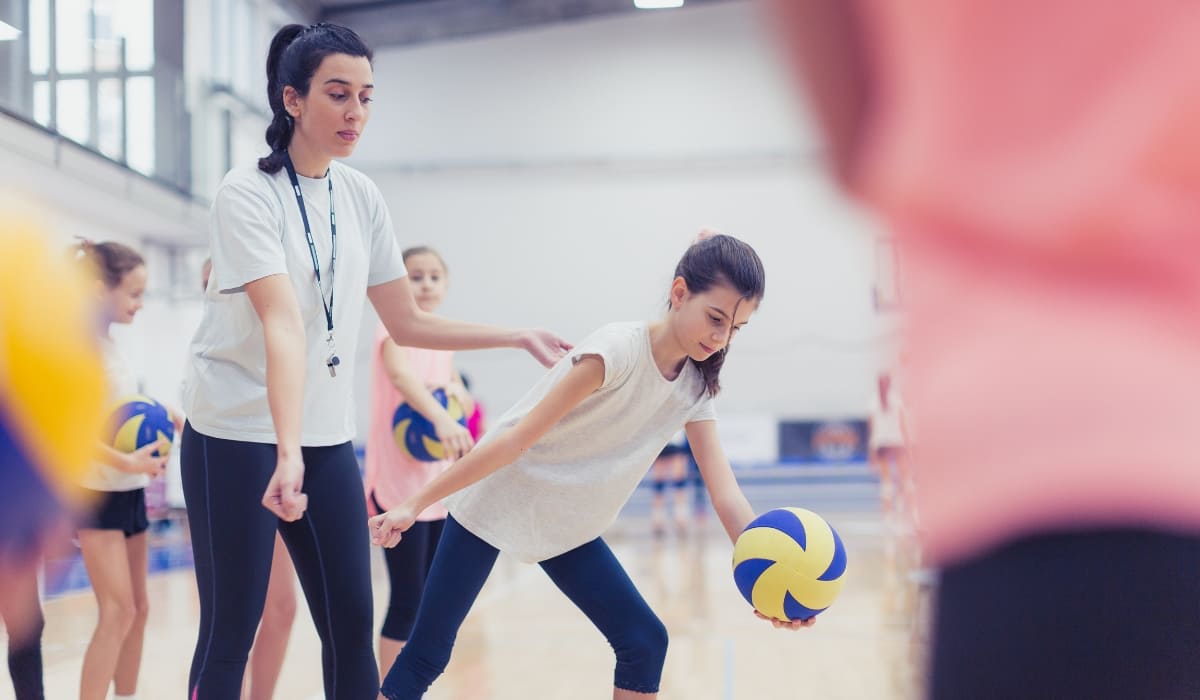
Transitioning from the broader question of whether volleyball is hard, let’s delve into the aspects that make this sport demanding yet fascinating. Here are some areas where new and even experienced players may find challenges:
Basic Skills: Mastering the Fundamentals
Volleyball involves mastering basic skills like serving, passing, setting, hitting, and blocking. These skills are the game’s foundation, requiring specific techniques and constant practice. Perfecting them is vital to becoming a competent player, but the journey can be tough, especially if you’re just starting.
Your Height Limits You
While height can be advantageous for blocking and hitting, it’s not everything in volleyball. Shorter players may find certain aspects challenging but can still excel in areas such as serving and defense. Volleyball is a game where agility and skill often triumph over physical stature, but adapting your playing style to your height can be a complex process.
Physical Specimens
Volleyball players must be physically fit, with strong legs, core, and upper body muscles. The sport demands explosive movements, good endurance, and agility. The game’s physicality makes it thrilling but also physically demanding, requiring dedicated training and conditioning.
Requires Great Teamwork
Volleyball is not just about individual prowess; it’s a team sport that requires seamless coordination and communication among players. The synergy between teammates and understanding each player’s role adds a layer of complexity that can be both challenging and rewarding.
Mentally Challenging
Beyond physical skills, volleyball requires strategic thinking and staying focused under pressure. Quick decision-making, adaptability, and resilience are vital mental attributes that players need to cultivate. This mental aspect of the game adds depth but also increases its difficulty.
Quick Reflexes
Volleyball’s fast-paced nature requires players to have sharp reflexes and rapid reaction times. Players must be ready to respond in a split second, whether it’s a powerful spike or a surprising drop shot. This need for speed and precision makes the game exhilarating but also one of the aspects that many find hard to master.
Also, Read: How Many Players Are on a Volleyball Court?
Is Volleyball Hard on Your Body?
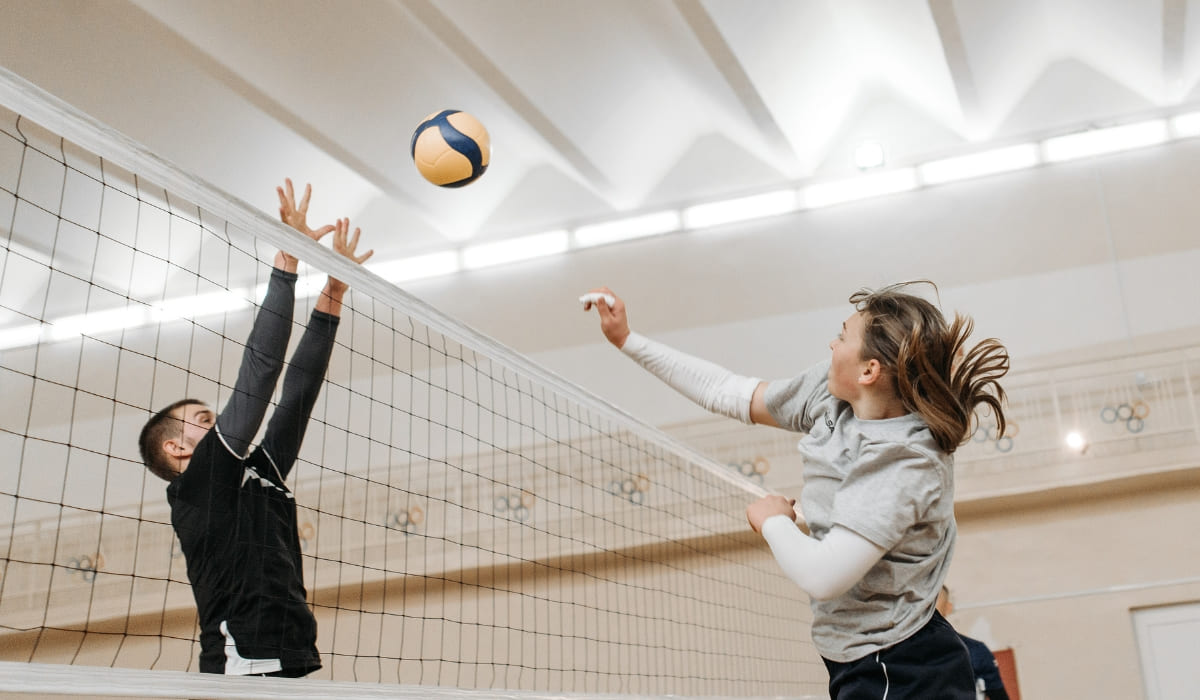
Like many physically demanding sports, volleyball can be hard on the body without proper precautions. The repetitive and explosive movements involved in hitting, blocking, and diving can lead to common injuries such as ankle sprains, knee problems, shoulder injuries, and lower back pain. These challenges emphasize the importance of proper training, conditioning, and technique in the sport.
However, it’s not all grim news. With the right approach, including warming up, cooling down, and following a well-designed training program, players can significantly minimize their risk of injury. Plus, the multifaceted physical demands of volleyball contribute to overall physical fitness and muscle development. So while it’s true that the sport can be hard on the body, the benefits and the sheer joy of playing often outweigh the risks for many volleyball enthusiasts.
Volleyball vs. Basketball: Comparing the Challenges
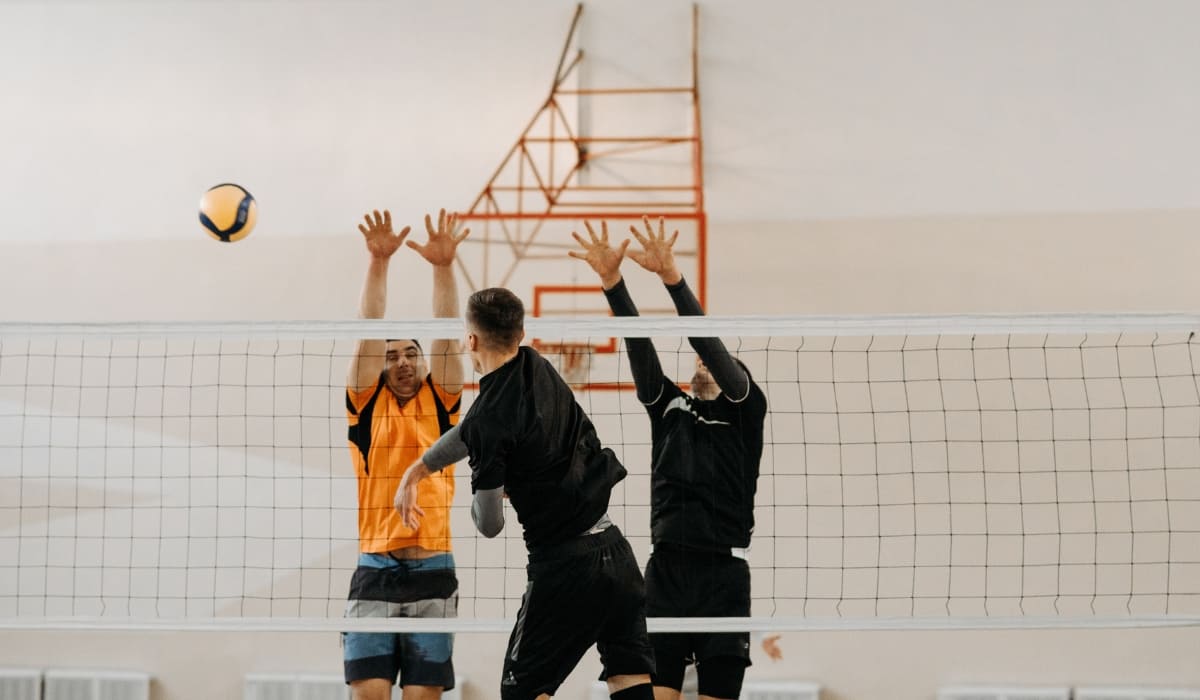
Although similar in some aspects, volleyball and basketball present their unique sets of challenges. Both are team sports requiring coordination, quick thinking, and physical prowess, but the skills and physical demands vary significantly.
Physical Demands
Volleyball requires more jumping and explosive movements. From blocking at the net to diving for a dig, players engage in quick and powerful motions. Conversely, basketball demands more running and endurance as players move continuously around the court.
Skills Required
Mastering fundamentals such as serving, passing, setting, hitting, and blocking is essential in volleyball. Basketball requires different skills, such as dribbling, shooting, passing, and playing defense. Each sport necessitates specific training and practice to excel.
Mental Aspects
Both sports demand strategic thinking and the ability to stay focused under pressure. In volleyball, players must quickly react to their opponent’s movements and communicate effectively with teammates. Players must read the opposing team’s defense in basketball and make split-second decisions.
Teamwork and Coordination
Teamwork is vital in both sports, but the roles and coordination may vary. Each player has a specific position in volleyball, and seamless cooperation is needed to successfully pass, set, and spike the ball. Basketball requires more fluid movement and adaptability, with players often switching roles and positions.
Injury Risks
While both sports can be hard on the body, the injuries may differ. Volleyball often leads to ankle sprains and shoulder issues, while basketball might result in knee injuries and sprained ankles.
In summary, while there are similarities between volleyball and basketball, the challenges in each sport are unique. Whether you prefer a volleyball game’s rhythm and strategy or basketball’s speed and excitement, both offer enriching experiences that test physical and mental abilities.
You may also like: Can You Wear Basketball Shoes for Volleyball?
How Long Does It Take To Be Good at Volleyball?
Becoming proficient in the game of volleyball generally takes six months to a few years, depending on factors like age, physical ability, and training regimen. Players can improve their skills and excel in the sport with consistent practice and dedication.
Factors Influencing Progress
Age and Learning Ability: Younger players may have an advantage in developing good habits and muscle memory, while older individuals might bring life experience and strategic thinking to the game. Either way, age is not a barrier to learning, and players of all ages can improve.
Training and Coaching: The quality of coaching and the time spent in practice significantly influence how quickly a player improves. Focused training, with attention to mastering the fundamentals, can expedite progress.
Physical Fitness: A player’s physical condition, including strength, endurance, and agility, can also affect how quickly they become proficient. Volleyball requires strong legs, core, and upper body muscles, and players with a solid fitness base may progress more quickly.
Mindset and Dedication: A positive attitude, willingness to learn, and commitment to practice and improvement are vital for progression in volleyball. Players dedicated to learning and growing in the sport often see more rapid improvement.
In essence, there’s no fixed timeline for becoming good at volleyball, as various factors can influence the learning curve. The key is consistently practicing, seeking quality coaching, maintaining a positive attitude, and approaching the game with determination and patience. Whether a hobby or an aspiring professional pursuit, volleyball offers opportunities for growth, camaraderie, and enjoyment at all skill levels.
Age and Learning Volleyball: Navigating the Process
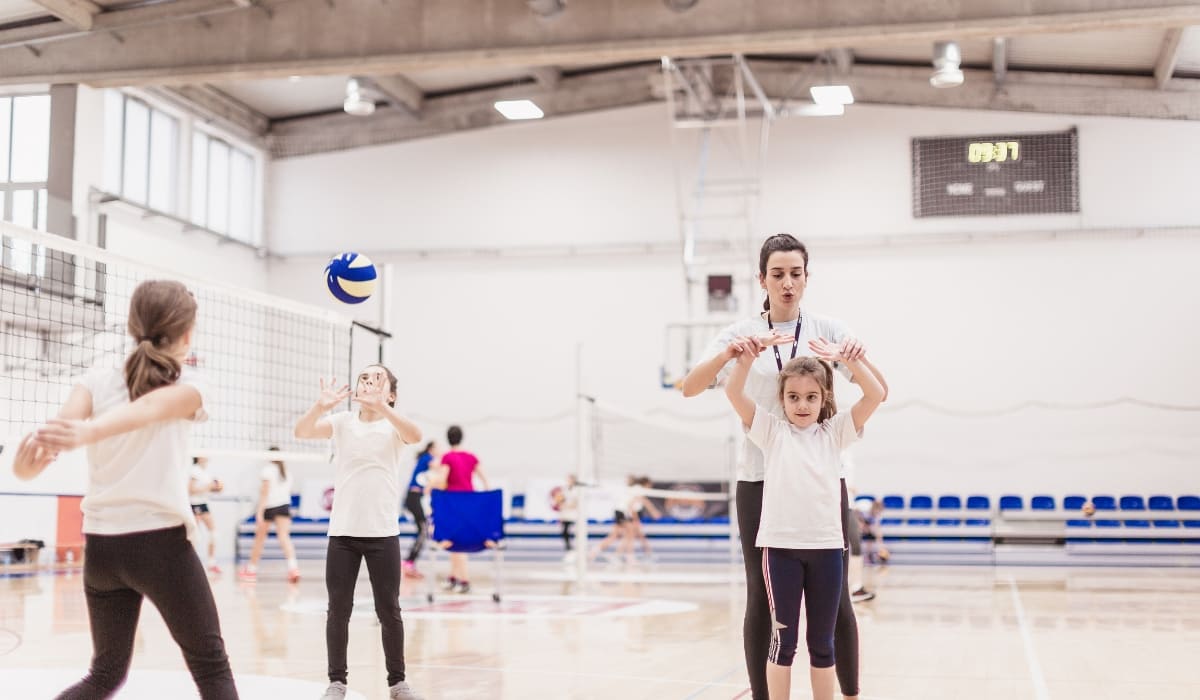
When it comes to learning volleyball, age truly is just a number. There’s a common misconception that volleyball is best known at a young age, but the reality is much more inclusive and encouraging. People of all ages can start playing volleyball and become skilled with proper guidance and persistence.
Younger players might have certain advantages, such as agility, quicker reflexes, and perhaps more time to dedicate to practice. However, older individuals often bring wisdom, strategy, and discipline to their approach, making them valuable players.
Learning volleyball involves mastering essential skills such as serving, passing, setting, hitting, and blocking. Regardless of age, these fundamentals are accessible through practice, coaching, and perseverance. Proper training can help players at any age to build good habits, enhance muscle memory, and reduce the risk of injury.
The volleyball landscape is diverse, featuring players of varying ages and backgrounds. It’s a sport that fosters teamwork, communication, physical fitness, and mental toughness. Whether starting as a child, a teenager, or an adult, the journey into volleyball can be an exciting and rewarding one. It’s never too late, nor too early, to embrace the challenges and joys of this dynamic sport.
Conclusion
Volleyball is undoubtedly a challenging yet accessible sport that caters to various ages and abilities. Its complexity lies in mastering fundamental skills, utilizing teamwork, and maintaining physical and mental agility.
Height may limit certain aspects of the game, but perseverance and strategic thinking can turn any player into an asset on the court. Injuries are a consideration but can often be mitigated with proper training.
Comparisons with other sports like basketball reveal unique challenges, and the journey to excellence in volleyball depends on consistent practice and determination. The sport offers endless opportunities to learn, grow, and excel, whether young or old.
FAQS:
Is Volleyball a Hard or Easy Sport?
Volleyball can be considered a challenging sport that requires physical and mental skills. Mastering the fundamentals and working well as a volleyball team adds complexity, but with practice, the game can be enjoyed by players of all levels.
Is It Hard to Start Playing Volleyball?
Starting to play volleyball may seem a difficult sport, especially if you’re new to the sport. However, with proper training, guidance, and determination, players can quickly improve their skills and enjoy the game.
Is Volleyball a Hard Sport to Learn?
Learning volleyball requires time and effort to master serving, passing, setting, hitting, and blocking. But with dedication, even a beginner can become proficient over time.
How Hard Is It to Get Good at Volleyball?
Becoming good at volleyball requires consistent practice, dedication, and a willingness to learn and improve. The difficulty varies from person to person, but players can excel with the right mindset and training.
Is Age a Barrier to Learning Volleyball?
No, age is not a barrier to learning volleyball. Players of all ages can start playing and improving their skills. Younger players may have an advantage in developing good habits and muscle memory, but adults can also learn and enjoy the game.
